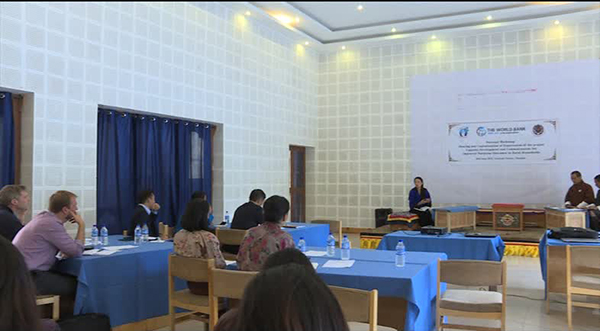 Every household in Tading Gewog, Samtse Dzongkhag will now have a kitchen garden within their premises. This is following a survey conducted by Tarayana in collaboration with relevant stakeholders.
Every household in Tading Gewog, Samtse Dzongkhag will now have a kitchen garden within their premises. This is following a survey conducted by Tarayana in collaboration with relevant stakeholders.
It was found there were problems of nutrient deficiency in Tading Gewogs compared to other villages in the country.
Starting last year, Tarayana Foundation in collaboration with relevant stakeholders started with a Project-Capacity development and communication for improved nutrition in the rural areas. The project was funded by World Bank. After making a brief study, the foundation decided to implement the project in Tading Gewog since the community lacked in many of sanitary issues like maternal and child health aspects, problems of mal-nutrients and neonatal death among others.
“In terms of nutrients even if the community members are aware of the need to eat different variety of food or vegetables, if they don’t have the means to grow those kinds of foods, it actually doesn’t serve the purpose, and in Tading particularly, this is the similar case of our rural community, water is one of the major issues which doesn’t enable these community members to have a kitchen garden or even to grow any kind of food,” said Sonam Pem, the Director of Programmes at Tarayana.
She added, through this project they hope to improve dietary diversity and care practices of pregnant and nursing women in that particular area.
“Through this project, what we basically did was we looked at different communication methods and communication mediums to convey the messages. One of the most effective communication media was through interpersonal relations; identifying a key individual change agent in the community and important message and information through that individual was very useful. At the same time using a local service provider like Health assistant, school teachers, other extension officers along with our own field officer, we tried to communicate with the community,” the Director of Programmes added.
Tarayana Foundation also plans to carry out similar projects in other rural communities in the country.



